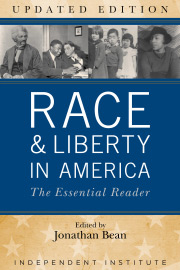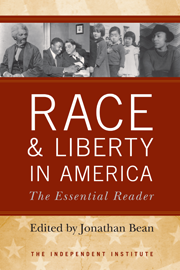William Wilberforce is one of the great forgotten men of history. But, all that is about to change as America marks Black History Month with Amazing Grace, the remarkable new film that opened nationwide on February 23rd. Amazing Grace commemorates the bicentennial of the British ban on the slave trade (1807), an antislavery movement led by Wilberforce. Without him, there would have been no end to the slave trade, certainly not in his time. And without his life-changing conversion to Christianity, Wilberforce might have lived a forgettable life as a rich man’s son. Instead, he helped give birth to new freedom in the British Empire, hope in America, and inspiration to abolitionists everywhere. Today, with slavery spreading in Africa and Asia, and, according to Amnesty International, an estimated 27 million in slavery worldwide, Amazing Grace is more than a period piece: it is a timely and enduring lesson on what one man can do to stop the spread of evil.
“Religion in politics” is a topic hot enough to spark a barroom brawl, or knock over cubicles in the modern workplace. Yet there is no getting around the religious passion that fed abolitionism, and later civil rights movements. For better or worse, Americans inherited both slavery and Christianity from the British. While slavery mocked the rhetoric of our Declaration of Independence (“all men are created equal”), a few people in Britain and America felt passionate about ending slavery because it violated the moral teachings of Jesus Christ and also the spirit of the Declaration: each of us “endowed by our Creator” with the rights of “life, liberty, and the pursuit of happiness.”
The fervor of abolitionism came from the New Testament, a body of literature providing the universal principles of natural law to attack slavery. Faith crossed borders and oceans, with Christians in both Britain and America invoking natural law first to end the slave trade (1807) and then to abolish it entirely within the British Empire (1833).
The story really begins in Britain, where an unlikely Member of Parliament, William Wilberforce, courageously took up the cause of human emancipation, despite virtually universal opposition. The son of a wealthy merchant, young Wilberforce led the hedonistic lifestyle of a college student at Cambridge. Bored with his father’s business, he entered Parliament at age 21 and made friends easily. Five years later, he had a conversion experience leading him to devote his life to freeing those in bondage. In 1791, his bill to abolish the slave trade failed by a wide margin but he persisted. In 1807, Wilberforce released A Letter on the Abolition of the Slave Trade on the eve of Parliament’s overwhelming vote to end the trade in human beings—a remarkable change in fifteen years. In 1823, “God’s politician” began a ten-year campaign to end slavery entirely, releasing his Appeal to the Religion, Justice and Humanity of the Inhabitants of the British Empire in Behalf of the Negro Slaves in the West Indies, in which he claimed that total and unqualified emancipation was a moral and ethical “duty before God.” Wilberforce died in 1833 just as Parliament abolished slavery. His friend John Newton, once one of the cruelest of slave traders, later in life went through a similar “born again” experience and wrote the famous song “Amazing Grace”—hence the title of the movie about Wilberforce’s awe-inspiring campaign against slavery.
Under Wilberforce’s leadership, the anti-slavery movement in Britain developed tactics similar to those of American abolitionists: speakers on lecture circuits, mass petitions to Congress, distribution of abolitionist tracts, and the use of “respectable” women as advocates. American abolitionists faced greater danger, including the “gagging” of petitions to Congress, the seizure of abolitionist mail in the South, and death threats. Despite the differences, in both Britain and the United States, Christian-inspired individuals were impelled to organize in opposition to man’s ownership of man.
Slavery, of course, never fully disappeared. Sadly, millions remain enslaved in Africa, Asia, and elsewhere. Inspired by Wilberforce’s example, the producers of Amazing Grace hope to stir public opinion against the slave trade through a web site, www.amazinggracemovie.com, which sponsors “The Amazing Change” to launch “a campaign to abolish modern day slavery and allow children and adults around the world to live in freedom.” Motivated by Christianity or not, this is one example of “religion in politics” that liberals and conservatives might do well to agree upon.









